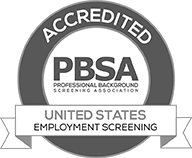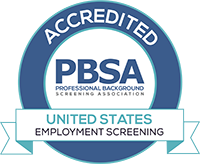BLOG
What Every Employer Should Know About the EEOC
December 27, 2016
The Equal Employment Opportunity Commission (EEOC) is a federal agency that exists to protect job seekers and employees from discrimination.
EEOC officials created a set of anti-discrimination recommendations that cover employers in the United States. The commission was established in 1964 as part of the Civil Rights Act. They are based in Washington D.C. and have 53 offices throughout the country.
Responsibilities of the EEOC
Their primary duty is to investigate charges of discrimination in the workplace. When a charge is filed, the EEOC investigates to determine whether or not the allegations are justified. If they are, then EEOC representatives work with the employer and the victim to create a resolution.
This can involve monetary and non-monetary relief for the person who filed the claim. In some cases, adjudication may involve reinstating an individual who was found to be wrongfully terminated or instituting new policies within the company that prevent future instances of discrimination.
EEOC members also make efforts to prevent discrimination by providing educational materials and technical assistance programs.
Essential EEOC Guidelines
The EEOC specifies many types of discrimination. Employers are not allowed to discriminate against applicants because of their:
- Race
- Age (for individuals 40 and over)
- Gender Identity
- Sexual Orientation
- Skin Color
- Genetic Background
- Origin
It is also illegal for employers to discriminate against applicants because of their religious beliefs or disabilities. These anti-discriminatory guidelines are not only for job seekers. Employers are equally prohibited from discriminating against current employees in regards to:
- Promotions
- Benefits
- Wages
- Training Programs
- Terminations
The EEOC's Stance on Arrests and Convictions
Arrest records, and how they may or may not be used when making hiring decisions, are a major topic these days. The Ban the Box movement continues to grow and we frequently see new laws such as the one that prohibits California employers from asking about juvenile criminal records. The EEOC has some clear guidelines on this subject.
In 2012 the EEOC published an update to a document called the Enforcement Guidance on the Consideration of Arrest and Conviction Records in Employment Decisions Under Title VII of the Civil Rights Act of 1964. It specifies that the EEOC does not prohibit employers from using arrest records or conviction data when making hiring decisions, but it does seek to prevent businesses from using that information to discriminate against a candidate.
According to the EEOC, there are two ways that employers use arrest records in a discriminatory manner. The first involves treating applicants who have similar criminal records differently due to their skin color, origin or any other protected characteristic. The second prohibits disparate impact discrimination and explains that if a criminal record is used to exclude people of a particular race then the employer must be able to show that the exclusions are relevant to the position and only in place to meet the needs of the business.
Authority of the EEOC
The EEOC website states that most businesses with 15 or more employees are covered by their regulations, as are most employment agencies and labor unions. The organization is authorized to investigate discrimination charges against any such organization.
Upon receiving a discrimination charge, the EEOC launches an investigation. In the event that they confirm an act of discrimination, they endeavor to settle the claim on behalf of the victim. Should they be unable to come to an agreement, then the EEOC has the right to file a lawsuit against the employer.
Consider the EEOC When Making Hiring Decisions
When making any employment-related decision, such as whether or not to hire, fire, promote or authorize training for an individual, it is illegal to discriminate based on the characteristics and scenarios referenced above. It is important for businesses to avoid discriminatory practices when looking for candidates, running pre-employment background checks, making hiring decisions or dealing with existing employees.











